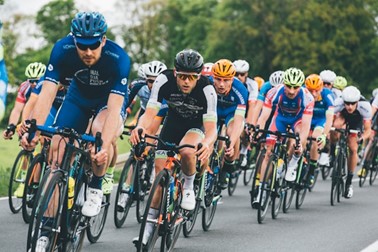Justin Orlando of Connecticut is a passionate athlete who enjoys playing basketball, football, and baseball, and is an avid CrossFit competitor. Justin is actively involved in coaching youth football and his daughter’s basketball team. Professionally, he has held leadership roles at major CPG companies and is currently the VP of Global Sales, overseeing the launch of innovative products like JetFuel Energy Drink. In the following article, Justin Orlando delves into the fascinating world of sports psychology and explores how mental strategies influence athletic performance.
Sports have long been celebrated for their physical prowess, but behind every remarkable athlete lies a complex mental landscape. From managing pressure to cultivating resilience, psychology plays a pivotal role in shaping success on the field, court, or track.
Justin Orlando on the Background of Sports Psychology
Sports psychology is a specialized field that focuses on the psychological factors affecting athletic performance and participation. It encompasses a wide range of topics, including motivation, goal setting, confidence, concentration, and stress management. Sports psychologists work closely with athletes, coaches, and teams to optimize mental skills and enhance performance outcomes.
 The Power of Mindset
The Power of Mindset
One of the fundamental concepts in sports psychology is the power of mindset. Athletes with a growth mindset believe that their abilities can be developed through dedication and hard work, leading to greater resilience and perseverance in the face of challenges. Conversely, athletes with a fixed mindset believe that their abilities are innate and immutable, which can hinder their ability to bounce back from setbacks.
Goal Setting and Visualization
Goal setting is another essential aspect of sports psychology. Setting specific, measurable, achievable, relevant, and time-bound (SMART) goals helps athletes focus their efforts and track their progress. Justin Orlando of Connecticut explains that visualization, or mental imagery, is a technique used to mentally rehearse and visualize successful performances, helping athletes build confidence and reduce anxiety before competitions.
Managing Pressure and Stress
Competitive sports often come with high-pressure situations that can lead to stress and anxiety. Sports psychologists help athletes develop strategies for managing pressure and staying calm under stress. Justin Orlando of Monroe says that techniques such as deep breathing, positive self-talk, and mindfulness meditation can help athletes stay focused and perform at their best when the stakes are high.
 Building Confidence and Self-Efficacy
Building Confidence and Self-Efficacy
Confidence is a crucial predictor of athletic performance. Sports psychologists work with athletes to build confidence and self-efficacy, or belief in one’s ability to succeed. By helping athletes set achievable goals, develop skills, and learn from mistakes, sports psychologists empower athletes to believe in themselves and perform to their full potential.
Overcoming Mental Barriers
In addition to physical skills, athletes must overcome mental barriers to reach peak performance. Common mental barriers include fear of failure, self-doubt, perfectionism, and negative self-talk. Sports psychologists help athletes identify and address these barriers through cognitive-behavioral techniques, such as reframing negative thoughts and building resilience.
The Role of Emotions
Emotions play a significant role in sports performance. Athletes must learn to manage their emotions effectively, channeling energy into positive performance outcomes. Sports psychologists help athletes develop emotional intelligence, or the ability to recognize, understand, and regulate their emotions, leading to better decision-making and performance under pressure.
 Team Dynamics and Leadership
Team Dynamics and Leadership
Justin Orlando of Monroe also notes that sports psychology also extends to team dynamics and leadership. Effective communication, trust, cohesion, and leadership are essential for team success. Sports psychologists work with coaches and team captains to foster positive team dynamics, resolve conflicts, and build a culture of accountability and resilience.
Mental Health and Well-Being
Finally, sports psychology encompasses mental health and well-being. Athletes face unique challenges related to performance anxiety, injury recovery, burnout, and retirement transition. Sports psychologists provide support and guidance to help athletes navigate these challenges, promoting mental resilience, self-care, and overall well-being.
Conclusion
In conclusion, sports psychology plays a vital role in shaping success in sports. By understanding the psychological factors that influence athletic performance, athletes and coaches can develop strategies to optimize mental skills, overcome challenges, and achieve peak performance. Justin Orlando of Connecticut says that from mindset and goal setting to managing pressure and building confidence, sports psychology offers valuable insights and techniques for athletes at all levels. By harnessing the power of the mind, athletes can unlock their full potential and achieve success on and off the field.








